Latest News
24 April 2020
Royal Honor 2020 Prof. Richard Goossens

Richard Goossens, Professor of Physical Ergonomics in the Faculty of Industrial Design Engineering (IDE), has been made a Knight of the Order of the Netherlands Lion in Vlaardingen. Because of the coronavirus, the official presentation will take place later in the year.
24 April 2020
TU Delft and NS study the impact of the coronavirus crisis on travel behaviour
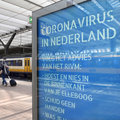
22 April 2020
TU Delft supports COVID-19 ResilientSociety platform
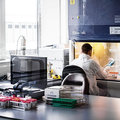
20 April 2020
Microorganisms work together to survive high temperatures
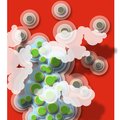
Delft researchers demonstrate that microorganisms can work together and help each other and their future generations survive and replicate at high temperatures.
20 April 2020
Minister Ingrid van Engelshoven and European Commissioner Mariya Gabriel launch Europe's first quantum computer in the cloud: Quantum Inspire

Today, Minister Ingrid van Engelshoven and European Commissioner Mariya Gabriel launched Europe’s first public quantum computing platform: 'Quantum Inspire'.
17 April 2020
European Commission greenlights large international water project

The European Commission has signed the grant agreement for WATER MINING, a 17 million euro project aimed at demonstrating innovative water resource solutions. As part of the project, demonstrations in Cyprus, Spain, Portugal, Italy and The Netherlands will be built to show novel efficient ways to reclaim nutrients, minerals, energy and water from industrial and urban wastewater and seawater. The public-private consortium consists of 38 public and private partners and 4 linked third parties in 12 countries. It will be led by Delft University of Technology (TU Delft).
16 April 2020
Lucky find in water research yields better detection method for coronavirus
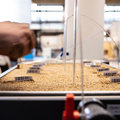
Water research and the coronavirus are not a logical combination. Nevertheless, researchers from Delft and Norway have managed to apply a finding from their water research in the detection of the corona virus. A coincidence – but certainly not less useful.
15 April 2020
Scalable quantum bits operate under practical conditions

QuTech, a collaboration between TU Delft and TNO, has managed to control qubits in silicon at temperatures over 50 times higher than previously. The increase to practical temperatures represents a crucial leap towards a functional quantum computer. Qubits are the building blocks of a future quantum computer and operating at a higher temperature opens up the possibility of integrating both qubits and their controlling electronics onto one standard chip. The researchers published their findings in Nature today.
14 April 2020
Mechanical ventilator from the 1960s inspires Delft engineers
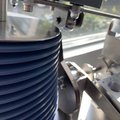
Today, a team of Delft researchers and students from the BioMechanical Engineering department is launching a new type of ventilator that is purely mechanical and which you could easily construct and repair yourself. The team borrowed a 1960s ventilator from Rijksmuseum Boerhaave and used it as inspiration. As it works mechanically, no electronics are required. This is particularly advantageous since its production is not dependent on the – now uncertain – supply of parts from China.
14 April 2020
Scientists design ventilator made of standard parts
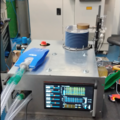
Amir Zadpoor and a team of scientists from the BioMechanical Engineering department are testing the first prototypes of a ventilator that consists entirely of standard parts. These parts are available locally almost all over the world and can be produced by hundreds of manufacturers. This means that, in many cases, the ventilator can be assembled locally. It is hoped that the design will be able to respond to the demand for ventilators and offer a solution to the logistical problems resulting from a shortage of specific components.
